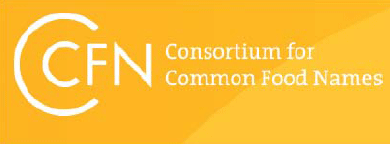
The Trump Administration should correct the inequity in cheese sales opportunities between the United States and the European Union, especially given the EU's anti-trade practice of abusing geographical indications (GI) policies to monopolize generic cheese names as a means to shut out competition. That is the message sent in a letter to President Trump today by the chairman of the Consortium for Common Food Names (CCFN) Errico Auricchio, who is also the President and Founder of Belgioioso Cheese based in Green Bay, Wisconsin.
"The United States is an extremely profitable dairy market for the EU; we must leverage that power in correcting this deeply frustrating inequity," Auricchio writes. "I urge you to utilize all available tools to remedy this situation. Let us at least consider imposing the same restriction on them that they do on us: require that they not sell cheeses by these names into our market, as long as we are locked out of theirs."
The United States is Europe's number one export market for cheese, totaling approximately $1 billion in annual sales, but the EU restricts competition from the United States in many cheese categories, contributing to a massive $1.6 billion U.S.-EU dairy trade deficit, the letter states.
"Europeans can sell their asiago, parmesan, feta, etc., in Wisconsin, but cheesemakers like me are blocked from selling Wisconsin cheeses by the same names in Europe," Auricchio writes, noting that it is "truly aggravating" that "while we are shut out of their market, which includes some of the highest cheese-consuming nations in the world, the United States allows EU companies to sell their cheeses with these names into our lucrative U.S. market - competing with us for our own U.S. consumers."
One of the main ways the EU blocks U.S. competition is by preventing nations outside the EU from marketing cheeses within Europe using common names like "parmesan", which the EU says are protected by GIs. The United States has long maintained that protection of a GI like "Parmigiano Reggiano" should not be extended to encompass generic terms like "parmesan" that have been used by cheesemakers around the world for generations.
The full text of the letter can be found on the CCFN website. The United States last month rebuked the EU for its abuses on GI policies in the annual Special 301 intellectual property report from the Office of the U.S. Trade Representative (USTR). CCFN continues to encourage the Administration to evaluate the full range of tools at its disposal to address the deeply asymmetrical nature of the U.S.-EU food trade relationship.
About CCFN
The Consortium for Common Food Names (CCFN) is an independent, international non-profit alliance whose goal is to work with leaders in agriculture, trade and intellectual property rights to foster the adoption of high standards and model geographical indication guidelines throughout the world. Those interested in joining can find information at www.CommonFoodNames.com.


